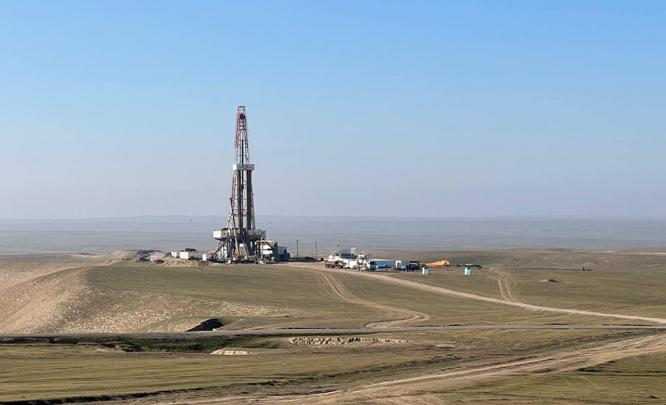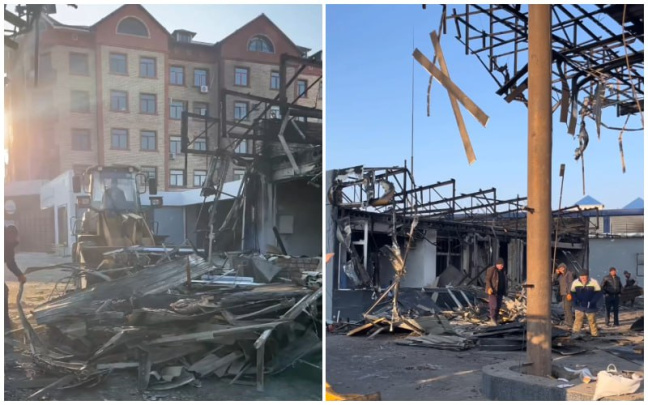Boysun mine accident: Hydrogen sulfide gas leak forces evacuations amid health concerns
On September 1, a man-made accident occurred at the "25th Anniversary of Independence" mine in Boysun district, Surkhandarya region, resulting in a hydrogen sulfide gas leak. This hazardous release led to the evacuation of nearby residents. Four days have passed since the incident, and more details have emerged.
Initial official statements were issued early on September 2, with the Ministry of Emergency Situations releasing information at 2:37 a.m., followed by the Ministry of Energy at 12:16 p.m. Both ministries confirmed that the incident was technological in nature.
According to these reports, the gas leak occurred during drilling operations at well number 604, where a malfunction in the process led to the release of hydrogen sulfide. Authorities swiftly evacuated residents living close to the mine for safety reasons. While the official statement emphasized that no casualties or injuries were reported and the situation was "fully under control," sources told Kun.uz that at least three people may have died as a result of the accident.
On September 2, Deputy Prime Minister Ochilboy Ramatov, along with several ministers and high-ranking officials, arrived at the scene. A rapid-response team was formed, and efforts to mitigate the consequences of the accident were initiated.
Current Situation in Boysun
Since the accident, Boysun residents have been reporting adverse effects, including the strong smell of gas, headaches, nausea, and fatigue. Two days after the incident, locals spoke with Kun.uz, expressing concerns about the lingering gas in the area.
The affected mine is located approximately 15 kilometers from the city, and the hydrogen sulfide leak has yet to be fully contained.
“One can still smell the gas throughout the city. While I haven’t experienced shortness of breath, the unpleasant odor has engulfed the area,” one resident shared.
Another resident noted that many people in the city have started wearing medical masks due to the persistent smell, likening it to the odor of burning cloth.
“The intensity of the smell changes with the wind direction. The situation hasn't drastically worsened, but it hasn’t improved either. People are being relocated to the district center. Some are leaving in their own cars, while others are staying. It remains unclear how long it will take to resolve the situation,” another resident reported.
“It smells like rotten eggs, causing headaches and nausea,” added another individual.
Videos shared with Kun.uz and circulating on social media show visible gas escaping from the mine, with thick smoke surrounding the area. Footage also shows hundreds of residents being evacuated from the city in trucks.
As of 6:00 p.m. on September 4, Kun.uz sources confirmed that the gas leak had not yet been fully stopped. In an effort to reduce the toxicity of the air, the gas was ignited, which led to a slight decrease in airborne gas levels, improving the situation somewhat.
Involvement of Foreign Experts
In the two days following the initial reports from the Ministries of Emergency Situations and Energy, no further official updates have been provided.
Eriell Company, the contractor responsible for drilling at the site, informed Kun.uz that they are unable to provide details due to the ongoing investigation by a government commission. The Ministry of Emergency Situations clarified that the Ministry of Energy is directly responsible for handling the situation. The Ministry of Energy, in turn, promised to provide comprehensive information shortly.
Sources have confirmed that experts from Russia and Japan have been called in to assist in resolving the disaster.
The Dangers of Hydrogen Sulfide
Hydrogen sulfide is a toxic gas that directly affects the nervous system. One of its dangerous properties is the ability to paralyze the sense of smell, which can prevent individuals from detecting the gas, potentially leading to severe poisoning if timely action is not taken.
Even low concentrations of hydrogen sulfide in the air can cause dizziness, headaches, nausea, and vomiting. In higher concentrations, it can result in coma, seizures, pulmonary edema, and death.







